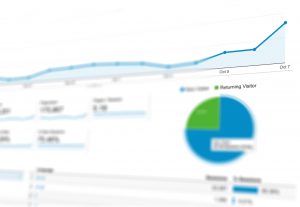One of the key factors to know the success of your digital marketing strategies is to have indicators and tools that allow you to measure the results of your digital campaigns.
- What are Google Analytics UTM parameters?
- Why use UTM Parameters in your Links?
- How to build an URL with UTM Parameters?

The metrics show the performance of your actions and allow you to verify if your strategies are giving the expected result according to the objectives.
Among the tools that you can not miss to analyze your marketing actions is Google Analytics, which provides information about the traffic of your website for free.
But to get more accurate results even Google needs a little help. That’s where you enter the Google Analytics UTM parameters.
Although the tool manages to capture a large amount of data and information about traffic to your website, UTM parameters are an advanced crawling option that gives you much more specific information.
Here’s why you should use UTM parameters in your links and how to generate them.
1. What are Google Analytics UTM parameters?
Before talking about UTM parameters in practice, it is important that you know their meaning and definition.
UTM is the abbreviation of Urchin Traffic Monitor, the latter is the name of the company that was bought by Google for the construction of Analytics.
Through the UTMs you will be able to more easily analyze where your website traffic comes from, i.e. which actions represent more clicks.
Whether it’s media such as social networks, landing pages, banners or blogs, as well as links to your website.
The UTM parameters are small fragments of text that can be incorporated into your links to track each time someone clicks on one of them.
When using UTM parameters, Google Analytics will show the specific traffic results for a certain source or channel.
For example, you’ll be able to see how many people came to a post on your blog via Facebook or Twitter, or how much traffic came to your website for a particular campaign you’re running.
This information is very important, as it allows you to track the results of each of your digital channels, and evaluate which actions are working more with your audience.
2. Why use UTM Parameters in your Links?

To make assertive decisions for your digital marketing strategy it is important to measure and analyze the results of each of your online actions.
The UTM parameters will help you obtain useful information and optimize your results. Learn why you should use UTM codes:
2.1 Tracking Traffic Sources
Do you share your blog posts on Social Media? You probably do it with the same link. But by adding UTM parameters for each platform to the links you share, you will know which social network is bringing more traffic to your blog.
2.2 Tracking your Campaigns
Are you preparing a special promotion on your website and want to know how much traffic and results this campaign is generating? Just add the name of the campaign in the UTM of all the links and advertisements of this promotion.
You can also follow the performance of the clicks in the emails you send.
2.3 Optimization of your ADS
You can optimize the performance of your online ads by testing A/B with UTM parameters.
For example, in a promotion ad you can use an image with the percentage discount and another image with the final price of the product, and add a UTM for each of the images. In the end you will know what works best for your audience.
3. How to build an URL with UTM Parameters?

To build a URL with UTM parameters you can use the Google tool, the URL Builder. The variables that you can use in the links to crawl are the following
- URL. It is the original link of your website that you want to start tracking.
- Campaign Source. It is the platform that originates the traffic, it can be Facebook, Twitter or some e-mail marketing tool.
- Campaign Name. Identifies which is the campaign and you can use it to know the objective of the advertisement. In the example, the goal is to track incoming traffic through blog content.
- Campaign Term. It is used to track the keywords that are used in the campaign and identify aspects of the audience.
- Campaign Content. In the cases of A/B Tests this variable is indicated to make the accompaniment; also to distinguish the links that take the user to the same URL.
4. Tips for Creating UTM Parameters

- You can use Google’s tool to shorten the URL and make it friendlier.
- Be careful with upper and lower case. It is not the same to use “utm_source=facebook” or “utm_source=Facebook”.
- Use a template to control the parameters you use. It is important that you have rules on how to write so as not to create different UTMs that may lend themselves to future confusion.
- Do not use special characters such as accents or punctuation marks.
- Pay as much attention to names, keep it as simple and short as possible to make it easy to remember.
You’ve probably heard the phrase “what can’t be measured, can’t be improved”; and nothing more appropriate to the subject of our post.
It is really important to have tools that allow you to measure the results of marketing and dissemination actions.
These results can guide you to know which are the media that generate more interactions with your audience and create successful strategies.
I hope you liked this post.

